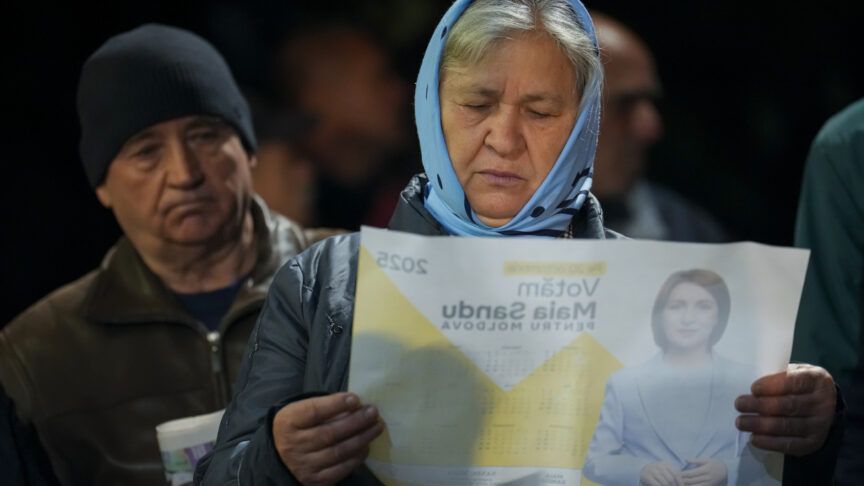Klaus can?t sink the Lisbon treaty
Now it’s only Vaclas Klaus who holds out against Lisbon
Worried about the economic costs of isolation and armed with legal
guarantees and an Irish member of the European Commission for all time, Irish
voters gave a
resounding Yes to the Lisbon treaty on October 2.
The shout of jubilation from Dublin
Castle as the final tally of the Yes
vote reached 67.1 per cent was heard in Warsaw:
President Lech Kaczynski at long last ratified for Poland a week later.
Only President Vaclav Klaus, who inhabits Prague
Castle, still holds
out against Lisbon. This is in spite of the fact that both houses of the
Czech parliament endorsed the treaty in May this year. Since then the
ratification instrument has been awaiting the signature of the president of the
republic which, according to the Czech constitution, he is bound to append. (He
is, by the way, also refusing to sign off on the Czech accession to the International
Criminal Court.)
Mr Klaus and a number of dissident senators from the Civic Democrat party
have already fought and lost two battles against Lisbon
in the Czech constitutional court, which sits in Brno. A third appeal, which claims that the
EU treaty as well as the Irish “legal guarantees” are fundamentally in breach
of the Czech constitution, is now under consideration.
Judgment on the admissibility of the appeal is awaited urgently, not least
by the European Council which is supposed to meet again at the end of October.
The rumours are that the Czech court regards Mr Klaus as something of a
vexatious litigant, and is likely not to want to hear the substance of the case
against the treaty which has now been endorsed by 27 separate democratic decisions
in all member states of the Union.
No doubt fearing such an outcome from Brno,
Mr Klaus, ever inventive, raised a new complaint against the treaty on October
9. Like so much in the constitutional struggle of the EU his grievance
goes back to the second world war.
The wartime Czechoslovak government in exile, led by Edvard Benes, decreed
the deportation and property seizure of the German population of Sudetenland. One recalls that the supposed plight of the
Sudeten Germans had been Hitler’s excuse to invade Czechoslovakia in 1938. The Benes
Decrees were accepted by the Allies at Potsdam in
1945 and taken over by the post-war government in Prague. Over 2.5m Germans and Hungarians were
forced to leave Czechoslovakia
before the iron curtain shut tight in 1948. After the Berlin Wall fell in 1989,
the restitution of Sudeten German property became a live issue.
When the Czech Republic applied to join the EU in 1996, there were
some in Germany who wanted Brussels to insist in the
accession negotiations on the repeal of the Benes Decrees. Conversely, some
Czechs wanted the EU to confirm the Decrees as part of the membership package.
The question was exhaustively discussed. The European Commission, however,
rightly insisted that the EU had no competence in issues of private property,
still less a retrospective interest in a dispute that referred to events well
before the drafting of the European Convention of Human Rights. Consequently,
the Sudeten question is not referred to in the
Czech-EU accession treaty of 2004.
Now, up pops Mr Klaus complaining that the Charter of Fundamental Rights,
which Lisbon
will make binding, will jeopardise the Benes Decrees. He claims to draw
inspiration from the controversial “opt-out” from the Charter obtained, after a
lot of fuss, by the UK (and
then Poland) at Lisbon. The much-vaunted
British and Polish opt-out from the Charter is in fact nothing of the sort: it
merely restricts the right of British and Polish courts to deploy the Charter
in domestic litigation against their governments. It determines that in the
area of social policy the Charter does not create justiciable rights if not
provided for in national law. But Protocol 30 does not allow Poland and the UK to evade their legal duty to
treat the Charter as binding. Nor does it prevent the European Court of
Justice, wielding the Charter, from reaching judgments that affect directly the
British or Polish state or citizen.
Article 17 of the Charter, on the right to property, says that no one may be
deprived of their possessions “except in the public interest and in the cases
and under the conditions provided for by law, subject to fair compensation
being paid in good time for their loss”. It adds that “the use of property” may
be regulated by law “so far as is necessary for the general interest”.
Article 51 restricts the mandatory force of the Charter to EU member states
only when they are implementing EU law. Article 52 says that rights are
guaranteed except when they conflict with the “general interest recognised by
the Union or the need to protect the rights of
freedom of others”. Believe it or not, Czech membership of the EU is still
regarded as being in the general interest of the Union.
Article 53, further, provides that the Charter does not restrict or adversely
affect human rights as recognised in international law to which the Union, the
Czech Republic or the Federal Republic of Germany are party – by implication,
including the Benes Decrees.
The Lisbon
treaty makes a careful catalogue of the competences that are conferred on the
EU by the states. Property is not among them. In any case, even if property
were to become an EU competence, the Charter cannot be applied retrospectively.
So Mr Klaus, once again, is barking up the wrong legal tree for spurious
political motives. If he had been truly concerned about the Benes Decrees, he
surely would have raised the matter either during the negotiation of the Lisbon treaty or during
its ratification in the Czech parliament. Nothing that he might gain now by
opening up the Lisbon
treaty to renegotiation would materially alter the circumstances of a single
Sudeten German.
There will, in any case, be no renegotiation of the treaty. The Czechs
cannot simply sign up to Protocol 30 because their concerns are not those of
the UK and Poland. Nor
would any other member state be prepared to start ratification all over again,
which an additional signature to an existing Protocol would require.
The most Mr Klaus can hope for is a unilateral Protocol of the same type
that has been won by Ireland
after its first, negative referendum. A Protocol with the Irish “legal
guarantees” will be added to the EU treaties at the same time as the next
accession treaty (probably with Croatia)
passes through national parliaments.
The European Council could agree to let the Czechs copy the Irish solution,
and agree a Protocol that limited the justiciability of the Charter in the Czech Republic.
But the heads of government would be mad to agree to this unless they get
written confirmation from Mr Klaus that he would, in the event of an agreement,
stop his games and ratify the treaty.
Meanwhile, the Czech constitutional court would be wise to dismiss the
appeal against the treaty from the 17 right-wing senators. They have organised
a hearing of the case on October 27, but are unlikely to deliver the coup de
grace in time to save the meeting of the European Council two days later. In
any case, the Swedish presidency is making slow progress in building the
package deal of key appointments that that summit had been intended to endorse.
All in all, the EU is in a bit of a mess.
As for Mr Klaus, he is entitled to his views about the European project. But
he cannot be allowed to sink the Lisbon
treaty. In trying to do so, he might earn credit in Moscow
but in acting exactly like his autocratic communist predecessors in central Europe he risks Czech integration with western Europe. Mr
Klaus is frustrating the democratic will of the Czech parliament and of those
26 other countries with which the Czech
Republic is wholly
interdependent. He is making himself – and his country – look absurd.
The writer is an MEP and president of the Union of European Federalists and an ECFR council member.
This piece first appeared in the Financial
Times on 14 October 2009.
The European Council on Foreign Relations does not take collective positions. ECFR publications only represent the views of their individual authors.


